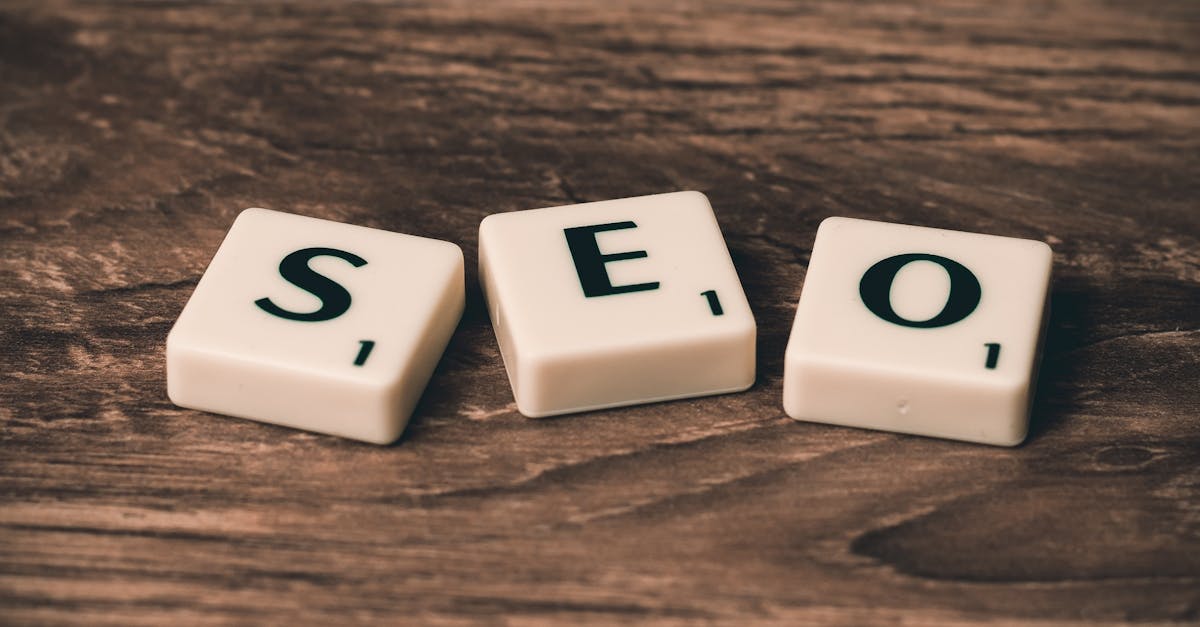
Table Of Contents
The Rise of NoCode Website Builders
The emergence of no-code website builders has significantly transformed the landscape of web design and development. These platforms empower users to create visually appealing websites without extensive knowledge of coding or technical skills. With intuitive drag-and-drop interfaces, individuals—whether they are entrepreneurs or hobbyists—can design and deploy their own sites in a fraction of the time it once took. This democratization of web development tools has opened new doors for small businesses and startups, allowing them to establish an online presence without hefty costs.
No-code solutions do not entirely eliminate the need for traditional web design and development professionals. While these tools facilitate easy website creation, complex web functionalities or highly customised designs still require expert input. The web design industry adapts to this shift by increasingly focusing on user experience, advanced integrations, and overseeing the implementation of these platforms. Professionals who can blend technical expertise with an understanding of no-code tools remain valuable in this evolving market.
Accessibility for NonTechnical Users
The emergence of no-code website builders has transformed the landscape of web design and development. These platforms empower individuals without technical expertise to create and manage their own websites, making web presence more accessible than ever. By utilising intuitive interfaces and drag-and-drop functionalities, users can construct visually appealing sites without needing to understand complex coding languages. This shift allows small business owners, freelancers, and content creators to focus on their core messages rather than getting bogged down by technical hurdles.
In addition to ease of use, no-code solutions often come with pre-designed templates that cater to various industries and styles. This versatility enables non-technical users to customise their websites significantly while maintaining a professional look. Web design and development are no longer dominated solely by trained designers; everyday users can now participate in the digital landscape, enhancing their brands with minimal effort. As these tools continue to evolve, the barrier to entry in the world of web design is lowered, inviting a diverse range of voices online.
The Future of Web Design Careers
The evolution of technology is reshaping career opportunities within the web design and development field. As businesses increasingly require a robust online presence, the demand for skilled professionals continues to grow. New tools and techniques allow for more innovative designs, driving a need for designers who stay updated with trends and technologies. Additionally, a shift towards user-centric design highlights the importance of those who understand user experience and accessibility principles.
Emerging specialisations within web design and development indicate that a broader skill set will become necessary for future professionals. Knowledge of responsive design, search engine optimisation, and digital marketing will complement traditional design skills. As industries diversify and digital landscapes expand, versatility will be a significant asset in the job market. This dynamic environment suggests a promising future for those pursuing careers in web design and development, as they will play a pivotal role in crafting engaging and functional online experiences.
Skills Required for Aspiring Designers
Aspiring designers in the field of Web Design and Development need to cultivate a diverse skill set to remain competitive. Proficiency in design software such as Adobe Creative Suite is essential for creating visually appealing layouts. Understanding user experience (UX) principles is crucial as well, as it helps designers create intuitive and engaging websites that cater to user needs. Familiarity with responsive design is increasingly important, as users access websites across various devices.
In addition to design skills, a solid grasp of HTML and CSS is vital for anyone looking to pursue a career in Web Design and Development. These coding languages provide the foundation for building web pages and facilitate effective communication between designers and developers. Staying updated with industry trends and emerging technologies can also give aspiring designers an edge. Good communication skills are important when collaborating with clients and team members, ensuring that project goals are met efficiently.
Web Design for Small Businesses
Small businesses increasingly recognise the importance of having a robust online presence. Engaging web design plays a critical role in attracting customers and is often the first point of interaction with potential clients. Effective web design and development can enhance user experience, ensuring that visitors not only find what they need but are also compelled to take action. This can lead to increased conversions and ultimately bolster sales figures for small enterprises.
For many startups with tight budgets, investing in high-quality web design can feel daunting. Fortunately, there are numerous cost-effective solutions available tailored to small businesses. These range from using templates to partnering with local freelance designers, allowing for customised websites without the hefty price tag typically associated with professional web design and development services. Emphasising a visually appealing and functional website can help small businesses stand out in their competitive environments.
CostEffective Solutions for Startups
Startups often operate under tight budgets, making cost-effective solutions essential for their success. Many small businesses are turning to Web Design and Development solutions that provide professional quality without the hefty price tag. Utilising templates and pre-built themes enables them to establish an online presence quickly while still allowing some level of customisation. This approach not only reduces costs but also shortens the time to market, which is crucial for startups aiming to capture attention in competitive landscapes.
Freelancers and small agencies have emerged as viable alternatives for startups seeking tailored Web Design and Development services. These professionals can offer personalised service at a fraction of the cost of larger firms, allowing startups to get the unique designs they need without overspending. Additionally, investing in a solid website from the outset can pay off significantly in the long run, as a well-designed site often leads to better user engagement and higher conversion rates.
FAQS
Is web design still a viable career option in 2023?
Yes, web design remains a viable career option in 2023 as businesses continue to build and maintain their online presence, requiring skilled designers to create user-friendly and visually appealing websites.
How has the emergence of no-code website builders affected the demand for web designers?
While no-code website builders have made it easier for non-technical users to create websites, the demand for web designers persists as many businesses still seek custom designs and advanced functionalities that these platforms may not offer.
What skills are essential for aspiring web designers today?
Aspiring web designers should focus on developing skills such as user experience (UX) design, graphic design, responsive design, and a basic understanding of HTML and CSS to stay competitive in the job market.
Are web design services necessary for small businesses?
Yes, web design services are crucial for small businesses as a well-designed website can enhance their online visibility, improve user experience, and ultimately drive sales and customer engagement.
What are some cost-effective web design solutions for startups?
Startups can consider using freelance designers, leveraging templates from website builders, or employing no-code platforms to create a professional-looking website without a significant financial investment.

















































